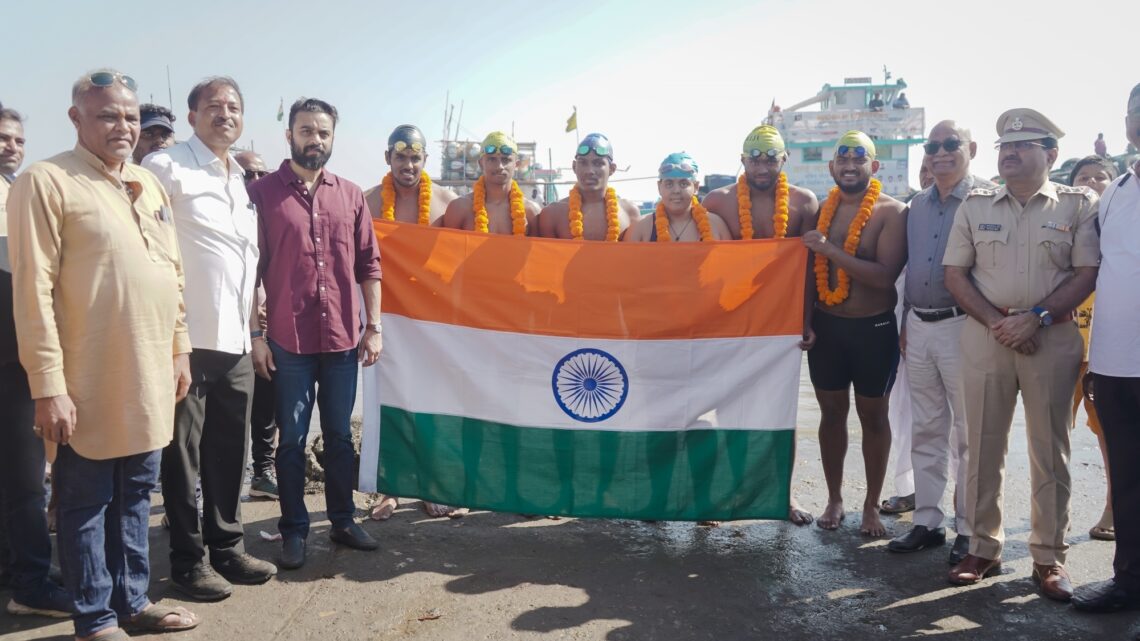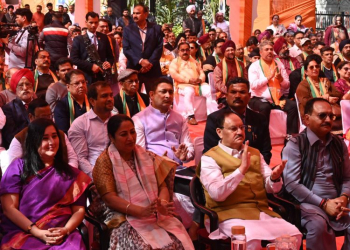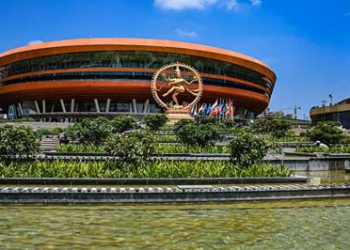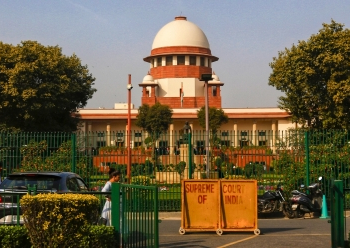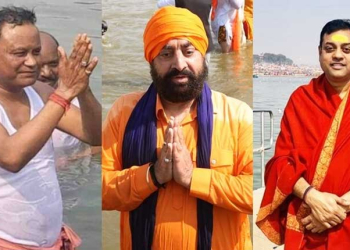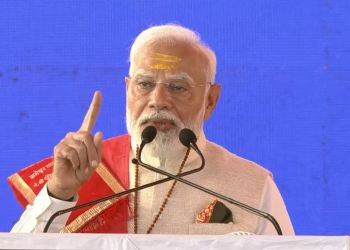Mumbai: Feeling weary and victorious, three teens, including a girl, and three youths completed a gruelling world’s longest relay-swim covering 1,100 km from Mumbai-Goa-Mumbai on Thursday, and are set to create a new Guinness World Record.
The unique relay-swim started in the Arabian Sea from the Gateway of India on December 17 and ended at Vasai Fort in Palghar on December 29, said the team coach and senior Indian Navy sailor, Madan Rai.
The six shivering teammates were accorded a warm welcome by a large number of cheering people, including Virar Palghar MP Rajendra Gavit, MLA Kshitij Thakur and others, as they stepped out of the water near the historic Vasai Fort, smiling and waving at the crowds.
The team included Jiya Rai (14) and Dhruven Naik (17), both from Mumbai, Raj Patil (17) from Raigad, Sampala Shelar (21) from Pune, and Kartik Gugle (21) and Rakesh Kadam (26), both from Palghar.
Organised by the Vasai-Virar Open Water Sea Swimming Foundation under the watch of the Para Swimming Federation of India, the relay-swim event included master swimmers with several national-international records to their credit.
Madan Rai’s daughter Jiya – the youngest and sole female participant – suffers from autism and is a recipient of this year’s Pradhan Mantri Rashtriya Bal Puraskar Award, besides a string of other honours.
Rai, who accompanied them throughout, said that each swimmer swam an average of six hours, day and night, remaining up to 7 km away from the coast in the high seas during the day and coming up to 5 km from the coast at night for safety reasons.
From the Gateway of India, they went to Alibaug, Raigad on the mainland, traversing through the main shipping channels, and then turned right to swim directly to Goa non-stop, till Fort Aguada.
“After a brief halt at Miramar Jetty in Goa for restocking supplies, they started the return swim and without a break returned to Gateway of India and then took a left turn to swim to the Vasai Fort,” Rai told IANS after ending the return sojourn.
The young swimmers encountered enormous challenges in the Arabian Sea, and one of them was seriously injured by a jellyfish bite with excruciating pain lasting for hours.
They dodged other big or gigantic fish or marine creatures which could have injured the youngsters, especially at night, as the temperatures dropped to 20-degree Celsius at night and the water stood at a cold 17-degree Celsius, plus strong winds and powerful water-currents all through.
Rai said that on an average, each swimmer swam six hours while going and four hours on the tiring return sojourn, and each got their turn to jump into the water every 30 hours during day or night. They had all been earnestly practicing for the feat since one year.
Four safety boats, one ship with logistics, lifeguards, doctors, food, etc. accompanied them with the Indian Coast Guard on high alert for any emergency assistance. The Indian Navy, ICG, Mumbai Port Trust, and the Goa government supported the event, Rai said.
Both ways, the swimmers passed through tiny and picturesque coastal towns like Kanhoji Angre (Khanderi) Island, Revdanda, Kashid, Dighi, Shrivardhan Bay, Dabhol, Bhudal, Jaigarh, Ganpatipule, Ratnagiri, Vijaydurg, Malvan and Fort Aguada in Goa, which they touched on the morning of December 22.
“As we have successfully completed the journey in 11 days, 22 hours and 13 minutes, this attempt will soon enter the Guinness World Records as ‘world’s longest open water sea swimming relay’, said a proud Rai.
Incidentally, the current record is was set in 2015 by a six-member Indian Air Force team, ‘Sea Hawks’, which swam 1,031 km to break a 200-member Italian relay-swimming team’s achievement of 839 km in 2008.
(IANS)



